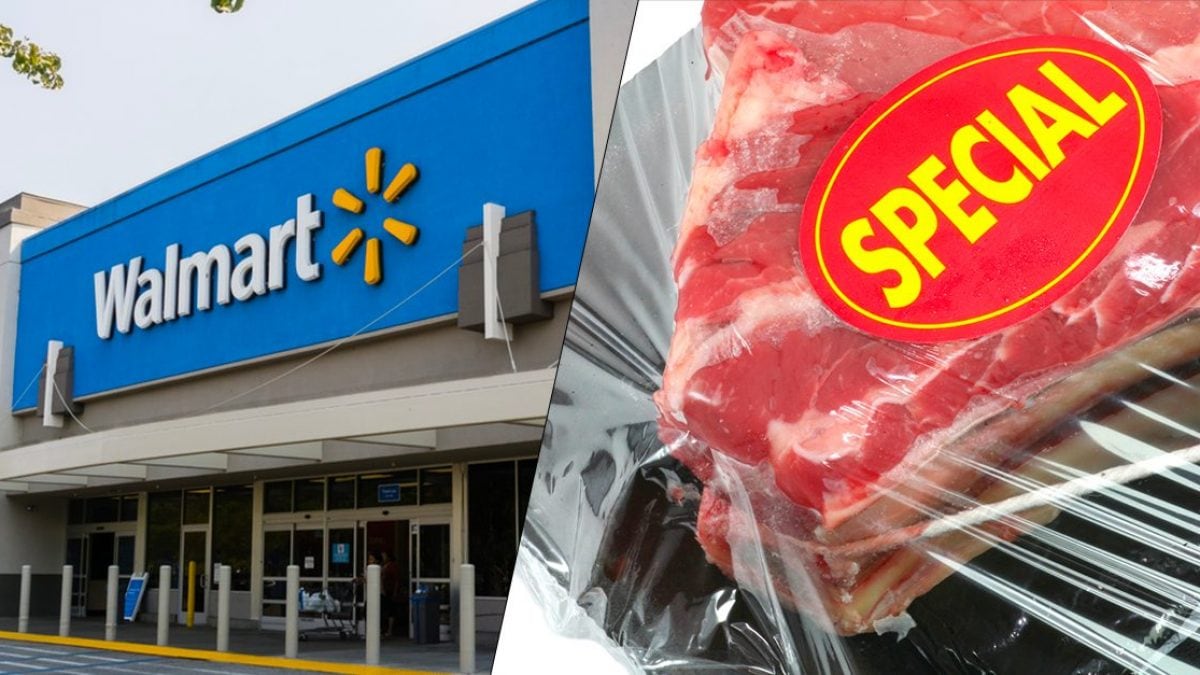
When it comes to grocery shopping, Walmart often seems like the go-to store for just about everything—from bulk snacks to cleaning supplies, and yes, even meat. After all, who wouldn’t want to grab a pack of chicken breasts, a steak, or ground beef while shopping for household goods at unbeatable prices? However, when it comes to the meat aisle at Walmart, you might want to rethink that convenience and dig a little deeper into the reasons why buying meat here isn’t the best idea. Let’s break it down, shall we?
The Quality Control Issue
One of the most concerning aspects of buying meat at Walmart is the lack of transparency in its supply chain. The retailer sources its meat from large industrial farms, which prioritize efficiency over quality and sustainability. Unlike smaller, local farms where you might have more information about how animals are raised, processed, and handled, Walmart’s meat often comes from suppliers with little or no accountability in the public eye. While big-box stores like Walmart may promise fresh cuts of meat, the truth is that much of it is mass-produced in conditions that focus on quick turnover rather than quality.
Now, we’re not saying that every piece of Walmart meat is a disaster, but let’s face it: would you trust a company that sells just about everything, from toys to tires, to provide you with the best cuts of meat available? Probably not.

Is Walmart’s Meat Really Worth the Cost?
If you care about ethical food sourcing (and let’s face it, we should all care), the meat sold at Walmart is hardly a shining example of responsible practices. The corporation’s suppliers have been linked to factory farming methods that often involve overcrowding, inhumane conditions, and questionable practices when it comes to animal welfare. Many consumers are increasingly aware of the negative impact that factory farms have on the environment, the animals, and the workers who are often underpaid and overworked.
Walmart's Meat Might Not Be as Fresh as You Think
When you grab that seemingly fresh pack of pork chops or chicken wings at Walmart, do you really know how long it’s been sitting in that meat case? Freshness is key when it comes to meat, but Walmart’s mass production and distribution model often result in a less-than-ideal turnover rate. Meat in these large, bustling stores can sit in their refrigerated cases for a long time before it ends up in your cart.
If you’ve ever noticed that certain cuts of meat seem to look a little too “glossy” or have an oddly dry texture, it’s a red flag that the meat hasn’t been handled with the best care. With a lack of consistent product turnover, you might be unknowingly buying meat that’s not as fresh as you think. And when it comes to meat, freshness isn’t just about taste—it’s also about food safety.

What’s Really in Walmart's Meat?
When you buy meat at Walmart, you’re not just buying protein—you might also be buying a dose of antibiotics, growth hormones, and other chemicals that can sneak their way into your diet. A lot of Walmart’s meat is from industrial farms where antibiotics are routinely used to promote growth and prevent disease in crowded, unhealthy conditions. While the USDA has guidelines for antibiotic residue in meat, the long-term effects of consuming such chemicals remain a topic of debate. Some studies suggest that the overuse of antibiotics in meat production is contributing to the growing problem of antibiotic resistance, a real health threat.
The Hidden Cost of Cheap Meat
We’ve all heard the phrase, “You get what you pay for.” And while Walmart’s meat prices may seem appealing at first, they come with hidden costs—often ones you can’t see. Those low prices might make you think you’re getting a bargain, but in reality, they come at the expense of workers, animal welfare, and the environment. The push for cheaper meat is one of the driving forces behind factory farming, and unfortunately, low-quality meat often leads to poor health outcomes for consumers, both in terms of food safety and long-term well-being.
Where to Find Better Meat Options
So, where should you go if you’re not buying your meat at Walmart? There are plenty of options for those who care about the quality, freshness, and ethical sourcing of their food. Local butcher shops, farm-to-table markets, and even small grocery chains are much more likely to offer higher-quality, hormone-free, and sustainably sourced meats. Plus, buying from these places means you can ask questions about where your food comes from and get real answers.
Many areas now have farmers' markets where you can buy fresh, locally raised meat from farmers who prioritize ethical practices and environmental sustainability. Not only will you feel better about what you’re putting on your plate, but you’ll also be supporting local economies and reducing your carbon footprint.
;Resize,width=767;)
